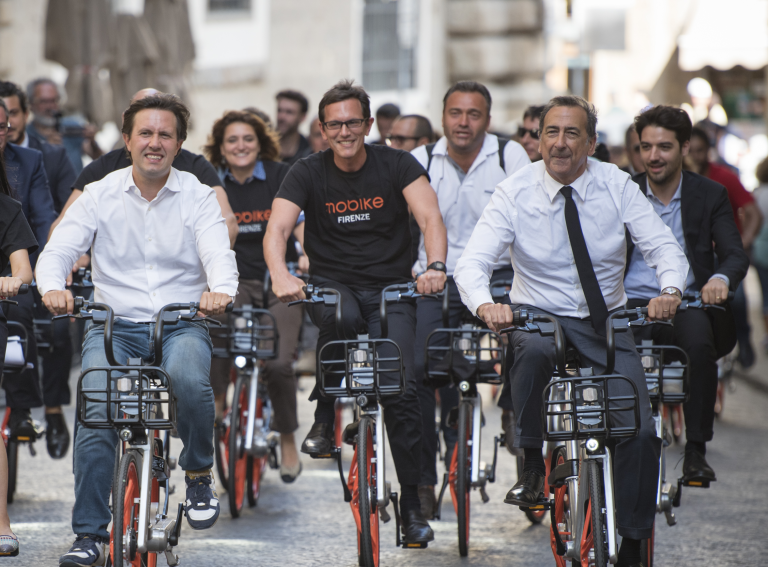Steve Pyer, Spin’s UK and Ireland Country Manager, speaks to Zag about the success of the UK e-scooter trials and how parent company Ford is enabling a quality over quantity approach.

Zag: Firstly, can you just give us some background on Spin and your work in the UK?
Steve Pyer: Spin has been in the UK since August last year after we launched in Europe back in March 2020. We are originally from San Francisco and prior to arriving in the UK we went through several tender applications. First we launched in Milton Keynes back in August 2020, which is a quite an amazing place. Milton Keynes is very well set up for micromobility and innovation with big wide boulevards. Thankfully, we also won six locations in Essex, which is quite an important market for our owners Ford, so they were really excited by that. We have now got seven locations in the UK: five short-term hire markets (Milton Keynes, Chelmsford, Basildon, Clacton, and Colchester) as well as the long-term hire in Braintree and Brentwood, where you pay a monthly subscription, and you get full access to a scooter.
Zag: How does your long-term hire model work, as it is slightly different?
SP: I mean there are massive differences. You have exclusive access to a scooter, so everyone looks after theirs. We do not have any other operations in the city, so if anyone has an issue, we just go there from our other local operations and swap the scooter out. When we deliver a scooter, we always offer training, get them a helmet, show them what to do, how to charge it, how to ride the scooter, so it is a much more personalised service. The uptake has not yet been huge because it’s aimed primarily at commuters and it is a bigger commitment, while you are seeing massive ride numbers across the UK with the short-term model. But what we are seeing is that businesses are much more interested than individuals, and we have had a few businesses starting to buy multiple journeys or multiple scooters for their staff so they can get to work without taking a car. That has sort of taken off a bit more, which is quite an interesting angle that we did not really expect to start with.
Zag: What were the key things that you learned from operating in Europe that you have now brought to the UK?
SP: When we launched in the UK, we were quite a small team, so we had a few of the German team members over helping us out. That was in the middle of pandemic, and I think a lot of the learnings were mainly around how you operate the service effectively. As we have Ford as a backer, we do not have to go in and throw loads of scooters out there and demonstrate massive numbers straightaway. It is a lot more of a long game, where we would rather get in there and ingratiate ourselves by working closely with the cities and towns, we are operating in. We can slowly ramp up from there as we have done in Essex, where we have now got over 1,000 scooters across four short-term markets. We want to go slow and steady while people get used to the new mode of transport and seeing them around.
Zag: With that in mind what is the ambition in terms of scale by the end of the trials in March next year?
SP: This is the issue for every operator that we have spoken to. The trials have now been extended until March, but there is no churn, no movement and no new cities coming on board. We are at our caps in Essex and Milton Keynes, so really everything we do now is just around making sure we have watertight operations. We are doing loads of work with stakeholders in cities including transport organisations, charities, and local businesses. We just want to do our part in making sure we work with the city councils and local stakeholders to ensure that this is successful, and the data that comes out of the trials is what the DFT needs to make an informed decision.
Zag: Do you think that the trials have been a success and how would you like to see sector regulated going forward?
SP: I would say they have been successful. If you look at the ride numbers that all the providers are reporting, the uptake in the UK is probably bigger than anywhere else in the world. That might just be down to the fact that the bidding process in the UK has been well regulated. I think I am right in saying that Milton Keynes is the only one that has got more than one operator, whereas everywhere else just has the one operator. In terms of legislation, I like the way they have done it up until this point. They have used speed limiters, geofencing, and the scooters must be approved by the DFT to ensure they are safe and suitable. I also like the fact that you go through tenders. While it is hard and competitive, I think it creates innovation and it pushes companies. We have seen far more innovation in our schemes and in a lot shorter time scale in the UK than we have anywhere else.
Zag: Zag recently published a piece highlighting some of the issues with the current geofencing in London. How have you found it?
SP: It is not a London specific issue. I have seen it in other industries with the GPS that most operators use. It is never going to be 100% accurate, especially where there are also big buildings in the way. I think London is probably quite specific because it has got a lot bigger buildings and narrower streets. We have some improvements in some of our technology coming up soon and I think some of the other operators are looking at hyper accurate GPS or hyper accurate positioning, but I think that is always going to be a problem. It is never going to be 100% accurate.
Zag: Spin is one of three operators in Milton Keynes, while you operator solely in Essex. How do the two situations differ?
SP: These are only short trials, and we want to be the best we can, so we are constantly evolving, constantly innovating, and working with the council. We speak to Essex County Council, who granted us the tender, regularly, and we have weekly meetings in Basildon, Chelmsford, and Colchester. So, there is a whole layer of governance there that we are dealing with, which is quite intensive but also especially important. Milton Keynes is a dream for micromobility as I said earlier. It has big grid squares, wide cycle parts. If you leave a scooter outside of shop safely parked, there is so much space that people will not even notice it. Essex though has a lot of historical old towns, so we had to install a lot more specific parking bays, no-parking zones. There are a lot more restrictions about where you can and cannot park them, simply because, if you leave it on a pavement, it is less than a meter wide and may obstruct the path.
Zag: Is there anything that you have found to really work in terms of ensuring the trials are as safe as possible?
SP: There are loads of things you can and cannot do and each city is slightly different. But, for example, in some of the parks in Milton Keynes, such as Campbell Park which is quite a big wide-open space with lots of people walking through it, we have reduced the speed limit down to 10mph. I think the perception is that if you have never ridden a scooter before, they seem fast. But if you put it down to 10mph, they suddenly do not feel too fast for the rider. Across the whole of Essex, just because a lot of the streets are narrower, we have reduced the speed down to 12.5mph as standard. In addition, there are other slow zone areas that are down to 10mph as well. It is nice to see that London has come out with a 12.5mph limit, and if you look in Germany it is national legislation scooters are not allowed to go faster than 12.5mph. The other big issue that everyone is trying to solve is pavement riding. We have now partnered with Drover AI, a technology company that has put cameras on the front of our e-scooters as well as an array of sensors, and on-board computing power. It’s something we are going to be rolling those out across the UK soon. It is technology that has already been used in some of our US cities and it detects when you are on a pavement alerting the rider, giving us a lot more accuracy. We are also working with the police and our own teams to ensure people know what is allowed and what is not. Recently, we have been able to run safety demonstrations to members of the public in Essex working with a professional e-scooter training company. They give people a good chance to get used to riding a scooter in a safe environment, and we can teach them the rules and help them to understand some of the issues we are facing.
Zag: Spin recently conducted some research on the usage of e-scooters in the UK. Tell us more about the results.
SP: I have worked in micromobility for quite a while and one of the questions people ask is about the idea of a modal shift and how many people are actually moving away from cars. At this stage, the truth is you just do not know unless you ask people, so we put a survey out among our riders. We got just over 500 responses, which is quite a big sample size, and found that 82% of people said that they have opted to ride an e-scooter instead of driving alone at least once since the scheme launched. This is obviously fantastic for congestion, fantastic for stopping pollution, as short car journeys as you are probably very aware of the worst for causing pollution. So that is a really strong case for the need for other modes of transport. E-scooters will not be for everybody, but the more diversity you have in terms of transport modes, whether it is bikes, e-bikes, e-scooters, public transport, then the more people that you are going to shift away from cars. We also found that had the Spin e-scooter share scheme not been available, 31% of people would have used a car for their last journey. The government fast tracked all these trials because they were fearful that after a pandemic, everybody would be scared to use public transport and would revert to using their cars instead and what we have found is that e-scooters are becoming a genuine alternative to cars. The survey also showed that nearly half of the riders used an e-scooter to connect to another mode of transport, which is really encouraging. We are really pleased with the response that we got and with the results showing that this is working. The trials are genuinely doing what the government wanted them to do in the first place.
Zag: Finally, how has your partnership with Ford benefitted operations?
SP: We are owned by Ford, and they have a big reputation to uphold, which means they are in this space for the long-term. We are investing in the long-term with Ford’s backing as well, and it is nice having that big sister looking after us. Spin is not just some crazy start-up company; we follow process and plans very carefully. The biggest example was just before Brexit, we could ring up Ford and ask for their support and guidance. Internally, they have been working on Brexit since it was announced as you can imagine their supply chain goes all over Europe. So, it was really nice to be able to speak to experts and receive that support.





